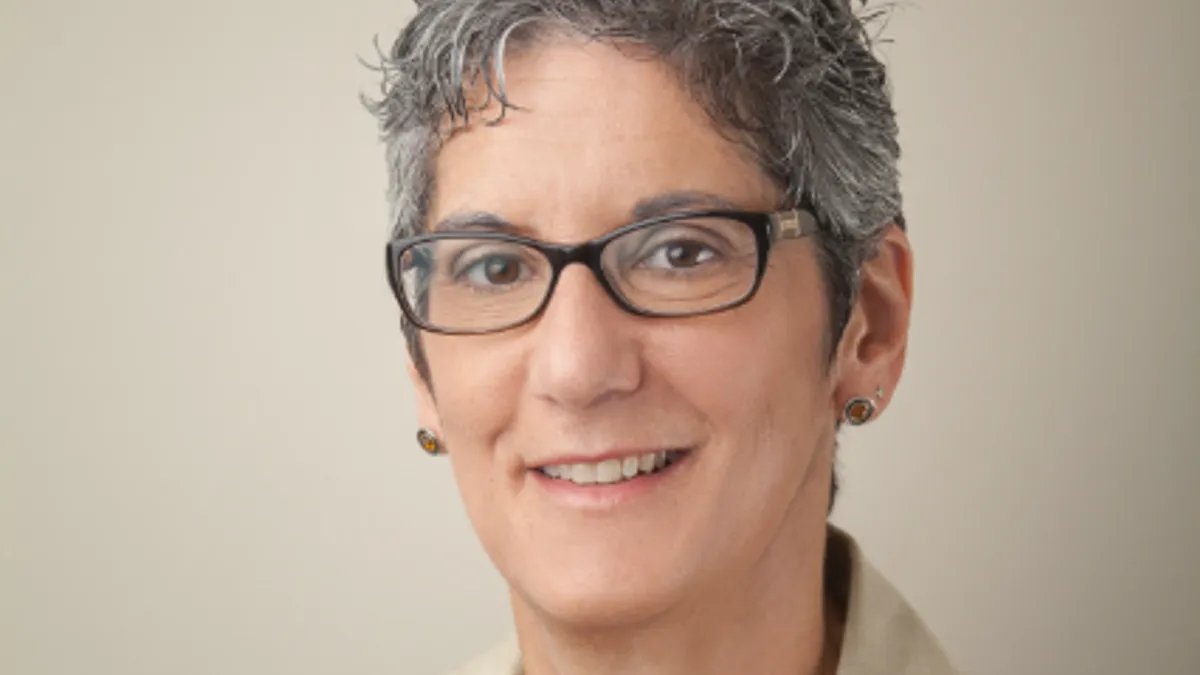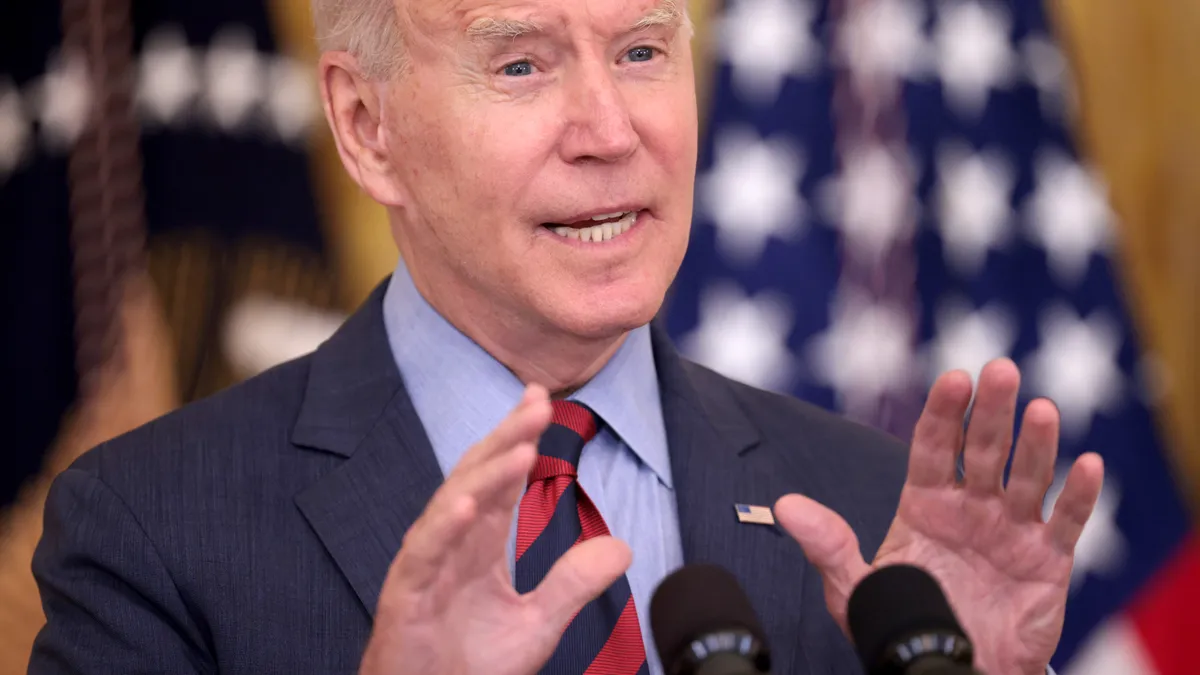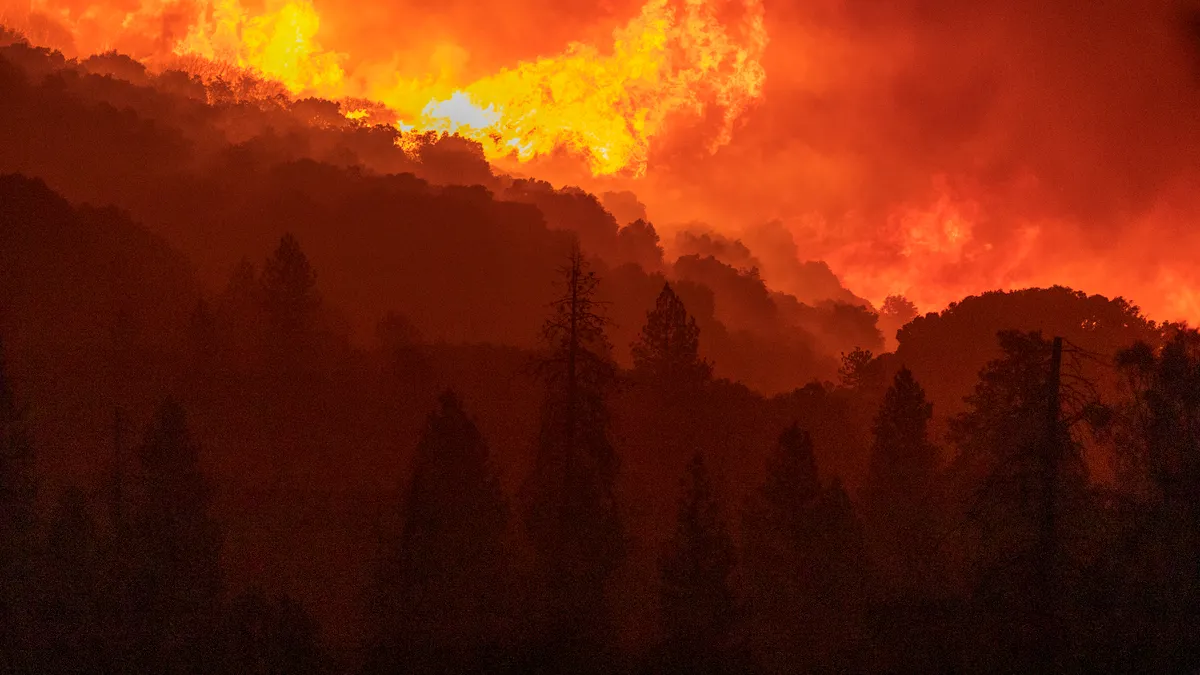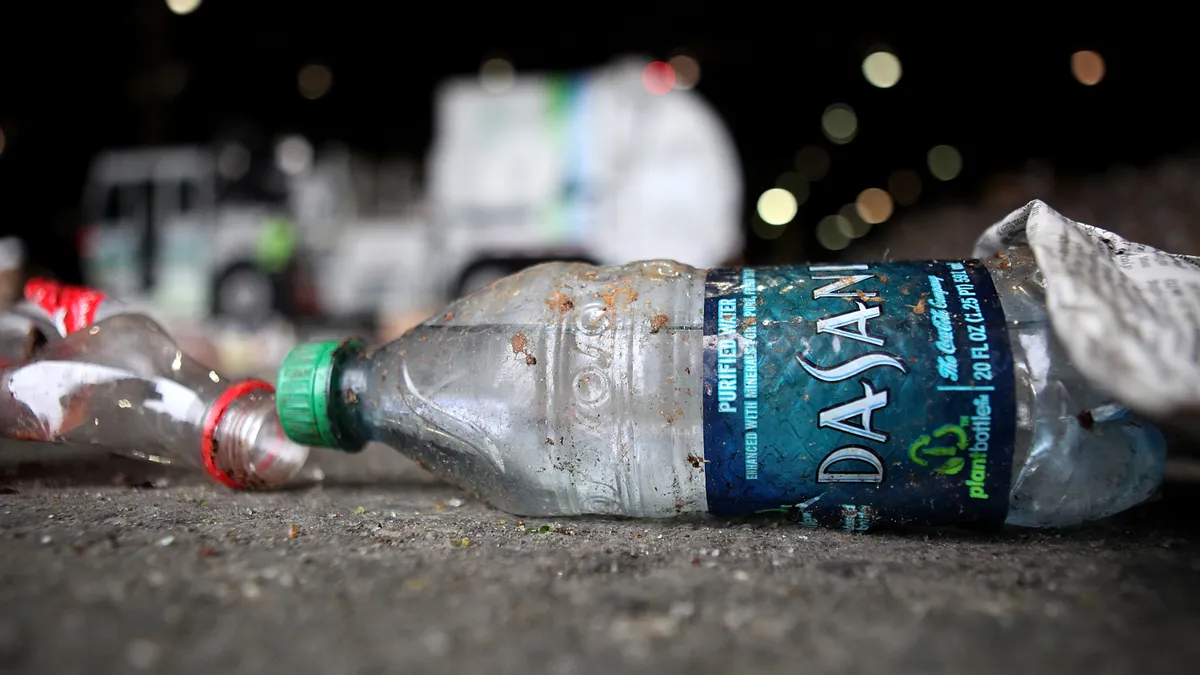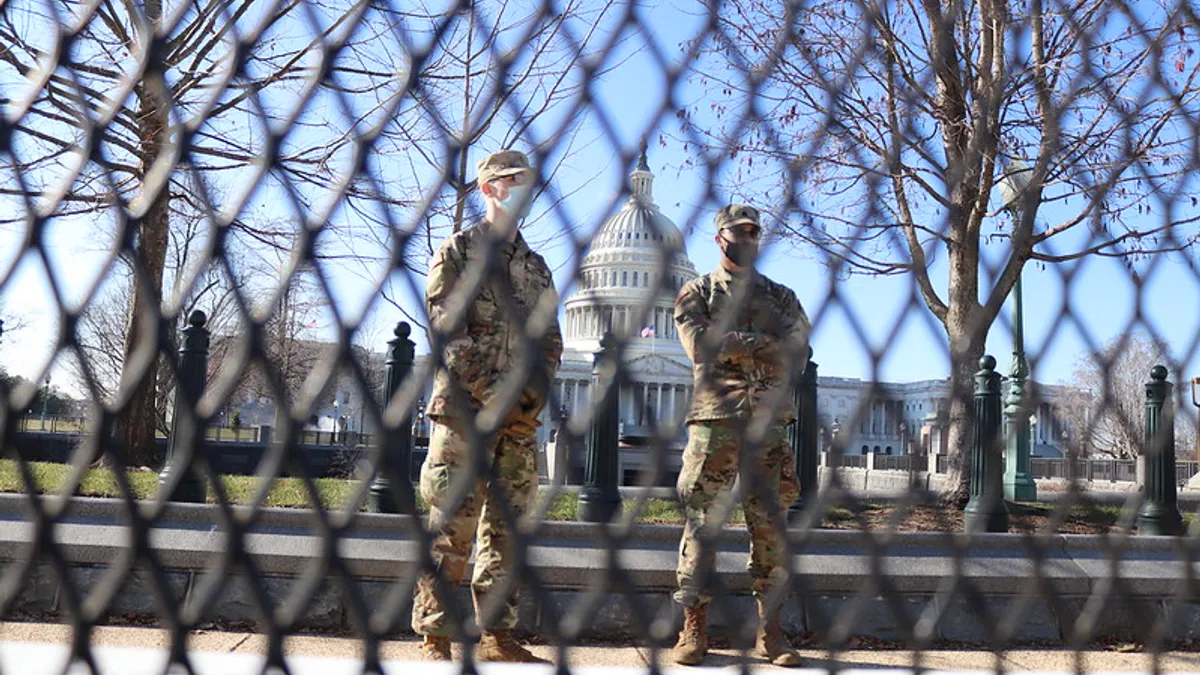First in a multi-part series about women with influential roles in the waste industry.
At WASTECON in August, hundreds of industry professionals gathered during a breakfast to welcome Michelle Leonard as she assumed her position as the new president of the Solid Waste Association of North America.
Born and raised in Southern California, Leonard graduated with her Bachelor's of Science in environmental studies from the University of California, Berkley in 1980. Through her experiences working on energy conservation projects in California, Leonard worked her way into a position at SCS Engineers, where she is now a vice president. Her membership and leadership on SWANA's International Board of Directors drove Leonard to become president of the association.
Waste Dive caught up with Leonard to learn more about her background in the solid waste industry, her goals as the SWANA president, and her experiences as a leading woman in an industry where women were once very rare.
Waste Dive: Would you mind giving a bit of background about yourself and the way you got started in the waste industry?
MICHELLE LEONARD: My first introduction to solid waste was in a project where they were looking to build waste-to-energy plants down in San Diego County ... My job was to look at alternatives to waste energy, which included recycling and composting ... Then in 1990, the state of California passed its AB 939 — the state’s integrated waste management act — which said we were going to divert from waste 25% by 1995 and 50% by the year 2000.
When that came into effect, that was really when I did the full dive into solid waste and we helped many cities and counties to write their initial plan on how they were going to meet the 25% and 50% diversion requirements. I ended up teaching a class at one of the local universities because nobody in California had ever done solid waste planning, and so we did a continuing education class on what the law required, and I recruited a number of industry experts on recycling and landfilling and all of the things that went into planning for AB 939 and 50% diversion. That’s really how I got deeply involved in solid waste and I kind of never looked back from there.
Have you just been working on similar projects through your position at SCS Engineers?
LEONARD: Yes. Over the years I’ve worked primarily with government agencies, helping them — particularly in California — to design and implement recycling and waste reduction and composting programs, much of them in support of complying with the state mandate of 50% diversion. That’s evolved now to my position as practice lead in sustainable materials management because SCS recognizes that we have a big shift in solid waste and in the industry, and that more of our emphasis is on waste reduction and recycling and materials management. We’re doing everything we can with the materials before we put them in a landfill. So that’s my position now, and not only in California, but throughout the U.S. providing sustainable materials management services to public and private clients as well.
What are some of the biggest trends that you’ve seen, or most interesting issues that you’ve worked on, during your time in the industry?
LEONARD: Well I think the biggest change has been the transition to materials management, resource management. So, looking at our waste as a resource and, what can we do with it before we put it in the landfill? There will always be a need and a use for landfills, but the emphasis now is how to reduce the amount of waste we generate, and then with the waste that we do create, how can we beneficially use it. [There's also a] big emphasis on organics, and much of it is driven by regulations, both state and federal regulations.
Did you ever feel that you had a disadvantage being a woman in the industry, and did you ever consider not going into the industry because of the demographics at the top?
LEONARD: The industry kind of adopted me, and certainly when we looked around the room 20, 30 years ago, it was 98% men and a couple of scattered women here and there. I’ll never forget a meeting 20, probably 25 years ago where it was probably that same kind of breakdown and the other woman at the table kind of said ‘Wait! We have to stop because there’s actually more women in the room now than men!’ But you know, it’s slowly evolved and I think there are a lot of very strong and vital roles that women are playing in our industry now.
It certainly was the good old boy network way back when. I tried to kind of use that to my advantage, in terms of particularly in my early days when I needed to get information and doing research, I kind of did the ‘Gee, can you tell me everything you know about the industry? I’m just the new girl on the block!’ and God bless them, sometimes men are like ‘Well sure honey! Let me tell you how it is.’ So sometimes you have to be smart and use that to your advantage. But I’ve never felt that women couldn’t play an important role in this industry, and I think we’re seeing women play a more and more important role in the industry.
Are there any specific challenges that you have faced as a woman?
LEONARD: I think, you know, just the same challenges maybe that women experience in the workforce in general, that there’s a perception that we’re emotional, that we’re weaker, that work isn’t our priority, that we have other priorities. I don’t think that’s unique to our industry.
Do you have advice for women seeking leadership in the industry, or just seeking a career in the waste industry?
LEONARD: I think that young women have to set their goals of where they want to be and what they want to do in the industry. I think you have to make yourself known and when you’re attending meetings or conferences or seminars, you have to step up and use your voice and be an active participant in any of the events that you attend or projects that you’re involved in. For me, I know I came into the industry and I said, "This is what I want to be" … When I joined SCS I said, "I said I want to be a vice president in 5 years," and that was at a time when SCS had I think one female vice president. And so you’ve got to make it known, I think more than maybe men do, that ‘This is what I want to do, and this is where I want to be,’ and then go for it and don’t give up.
We’re still dominated by men and we still have those challenges ahead of us, but I don’t think they’re insurmountable and I think we’ve shown in this industry and in government and politics that women are smarter. Women have a keen sense of what needs to be done and they get things done. We also have great skills in collaboration, and that is more and more important in everything that we do, is bringing people together to work together towards our common goals and objectives, and I think women are really good at that — that’s some of our strongest skills. Identify what you want to do, where you want to be, and then go for it and don’t give up until you get there, and then set some more goals and then go for those.
Now that you are the new president of SWANA, what is your biggest goal during your term?
LEDONARD: I want SWANA to be the premier solid waste association in the United States -- to be that go-to organization for education, for policies, for programs, to set the path for – as I said in my [induction] speech – transitioning from waste management to resource management.



